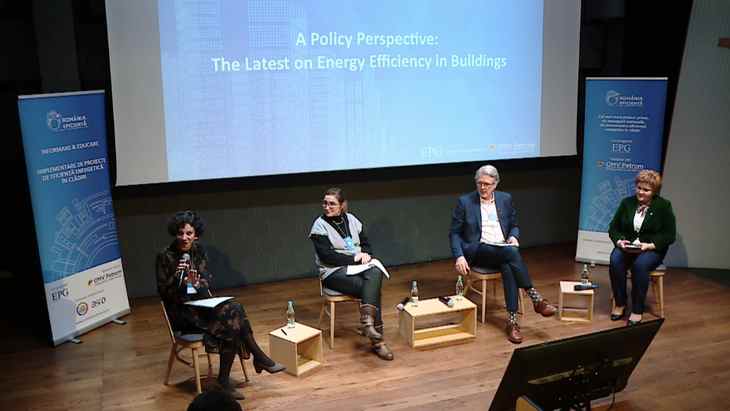The Romanian authorities are late in upgrading the methodologies and standards relevant to buildings from an energy efficiency perspective. Also, at the local level, there is a massive lack of capacity for enforcing the existing standards and regulations so that nZEB prerequisites become the norm at least for the new buildings. Energynomics asked some of the speakers present at the Efficient Romania Forum, what solutions might be used and if are there any good examples in this respect in other parts of Europe.
Adeline Rochet, Senior Policy Advisor at E3G believes the incentive problem can be solved based on provisions already within the Energy Efficiency Directive. One is the provision on the energy efficiency funds saying that “it is up to the member states to decide how to spend them, so they can be channeled to renovation”. Another provision shields the most vulnerable consumers. Adeline Rochet suggested that a possible approach might be to keep the support for the most vulnerable families but shift it away from energy bills to renovation actions, for the benefit of these families.
Adrian Joyce, Campaign Director at Renovate Europe, accepted that the current incentives do not function for increasing demand for renovation works on buildings. “The question is how to increase the desire among building owners to ask for renovation. What we see is that when good programs are launched, they tend to be accompanied by a communications drive to inform the public that it exists, and then it goes silent until the end. To keep an incentive going across the life of a program you need continuous communication about the program in as many media channels as you can.”
As an example, Adrian Joyce talked about a program in Ireland, his home country, that is incentivizing deep energy renovation of homes with a target of 5.000 homes by 2030. “It is working because you’re getting very generous part grants for income categories, but you have to get very significant improvements in the energy performance. I know that this program is heavily subscribed but the government told me last week that they expect to reach their target despite the labor shortage we are all aware of.”
Awareness seems to be already here, especially under these complicated times when the prices of energy made us all more attentive to them. What we need is better communication for increased desire and well-designed subsidizing programs for stronger demand.
